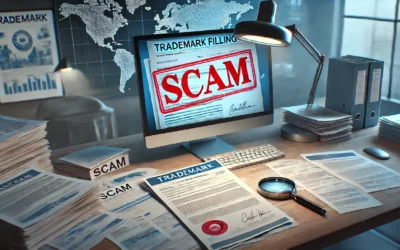In the world of business, one wrong move can cost millions. Just consider the case of Alaska Airlines, who made a costly trademark blunder that could end up costing them a whopping 160 million USD.
In 2016, Alaska Airlines acquired Virgin America from the Virgin Group and signed a trademark agreement allowing them to use the Virgin name in connection with their domestic US airline operations. The agreement was supposed to be in force until 2039 with an annual minimum license fee of 8 million USD.
Fast forward to 2018, when Alaska Airlines merged with Virgin America and phased out the Virgin brand the following year. With the brand no longer in use, Alaska Airlines stopped paying royalties to the Virgin Group. Big mistake.
Last year, the Virgin Group sued Alaska Airlines for unpaid license payments, and the High Court in London ruled on the issue last month. The court decided that Alaska Airlines was committed to making the license payments regardless of whether they used the Virgin trademark or not.
Now, Alaska Airlines is on the hook for paying the license fee for the next 16 years, even if they never use the Virgin brand again. That’s a staggering 128 million USD left to pay. It’s a harsh lesson for Alaska Airlines and a reminder to all businesses of the importance of carefully considering every aspect of a license agreement.
But is it fair? That’s a question for the courts to decide. For Alaska Airlines, the only thing that matters now is finding a way out of the mess they’ve made. They’ve already announced plans to appeal, but whether they can wrangle their way out of this costly blunder remains to be seen.
What can you learn from the Alaska Airlines case?
Firstly, when licensing the right to use another company’s trademark, make sure that you have the right to use the mark, but no obligation to use it. This will give you the flexibility to stop using the mark if it becomes necessary, without breaching the terms of the agreement.
Secondly, ensure that the royalties payable under the agreement are tied to your actual use of the mark. In the case of Alaska Airlines, they were still required to pay the annual minimum license fee of 8 million USD even though they were no longer using the Virgin trademark. This is an expensive lesson to learn, and one that could have been avoided if the royalty obligation was tied to actual use.
Thirdly, think of how to structure the license fee payments. A fixed license fee can be expensive if your volume of use is low. On the other hand, if your volume of use is high, a fixed license fee might make sense. It’s important to carefully consider the sales projections and structure the license fee accordingly. A safer option is to tie the license fee to your sales so that it is proportional to the actual use of the trademark.
Fourthly, if you enter into a long fixed-term agreement, make sure there is a provision for terminating the agreement. In most cases, fixed-term agreements cannot be terminated unless there are clear provisions for it. Agreements that are in force for indefinite periods of time can usually be terminated even when there are no specific provisions regarding termination. It’s important to ensure that you have the ability to terminate the agreement if necessary, without incurring significant costs.
Finally, when acquiring another company, it’s essential to conduct proper due diligence on their trademark agreements. In most cases, the liabilities of the acquired company become yours. If they have made bad deals, you will be the one paying for them. It’s critical to ensure that you fully understand any existing trademark agreements and their potential impact on your business.
In the end, the Alaska Airlines case serves as a costly reminder that license agreements can have significant financial consequences. It’s important to take the time to fully understand the legal implications of any license agreement before signing on the dotted line. Failing to do so could lead to a costly mistake, with potentially catastrophic consequences for your business.



